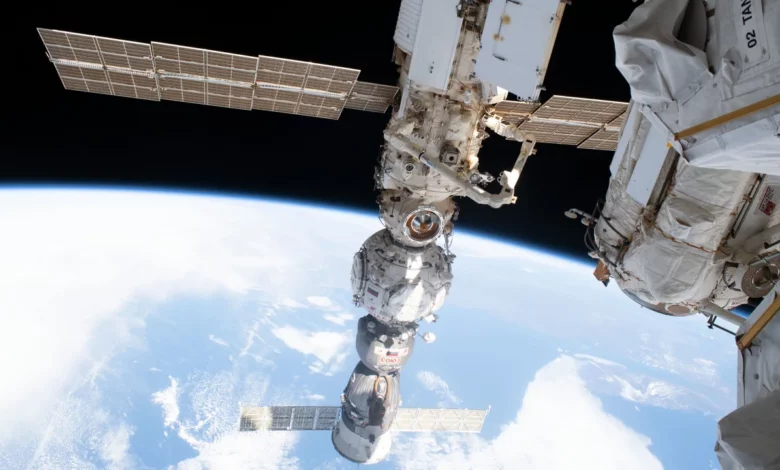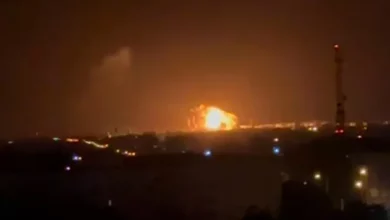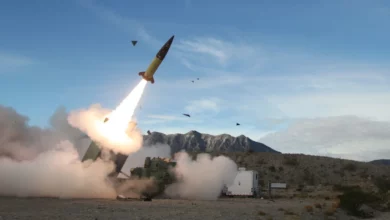
Roscosmos said Monday in a notice posted to the messaging site Telegram that the coolant leak affected a radiator circuit on the Nauka module, which is located on the Russian-controlled segment of the ISS.
The Nauka module was added to the space station in July 2021, but the leak occurred on an external, backup radiator that was delivered to the ISS on a space shuttle mission in 2010, according to NASA.
“The main thermal control circuit of the module operates normally and provides comfortable conditions in the living area of the module,” according to a translated version of the message. “The crew and the station are not in danger.”
In an update Monday afternoon, NASA said space agency officials in Houston “observed flakes emanating from one of two radiators” on the Nauka module at 1 p.m. ET.
“The flight control team informed the crew aboard the space station of the potential leak, and NASA astronaut Jasmin Moghbeli confirmed the presence of the flakes from the cupola windows, after which the crew was asked to close the shutters on U.S. segment windows as a precaution against contamination,” according to the NASA update.
NASA reiterated that the primary radiator is functioning normally, the ISS crew is not in danger, and ground teams will continue to assess the issue.
It was not immediately clear what caused the leak.
‘External influences’ and space trouble
The Russian space agency has already spent nearly a year working to get its crew transportation missions back on track after one of its Soyuz spacecraft experienced a noteworthy coolant leak in late 2022 while it was attached to the space station. That vehicle had transported NASA astronaut Frank Rubio and two Russian cosmonauts — Sergey Prokopyev and Dmitri Petelin — to the ISS in September 2022.
An investigation by Russian officials that was reviewed by NASA later determined that a small object likely struck the spacecraft, causing the leak.
“A NASA team has also looked at it independent of the Russian team and we also cannot find anything — based on the information we’ve been given by our Russian colleagues — of anything other than some type of external force or debris or something else like that,” said Joel Montalbano, NASA’s International Space Station program manager, during a news conference in July.
Debris in orbit is a growing issue. The number of pieces of uncontrolled garbage in Earth’s orbit has grown exponentially in recent years, due in part to previous collisions between objects in orbit and anti-satellite weapons tests.
Roscosmos determined that the coolant leak on the Soyuz spacecraft had rendered the vehicle unsafe and decided to launch a replacement capsule to bring the crew home.
The launch of that replacement spacecraft was then delayed by yet another coolant leak reported by Roscosmos on February 11 — this one on a Russian Progress vehicle used to ferry supplies to the ISS.
Roscosmos said at the time that the Russian Progress leak was likely also caused by “external influences.”
A replacement Soyuz finally launched to the ISS in late February. That vehicle safely returned Rubio, Prokopyev and Petelin to Earth on September 27.




